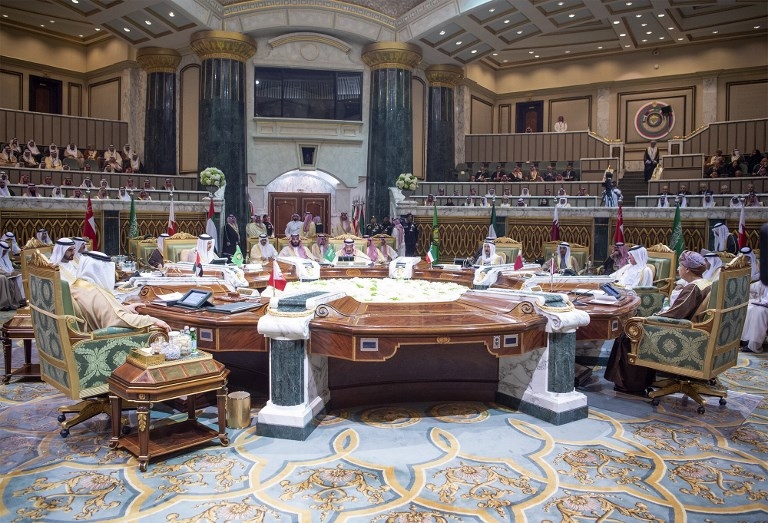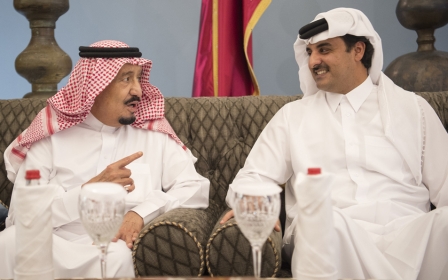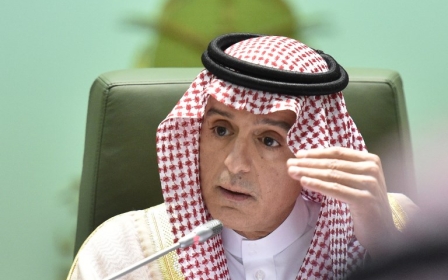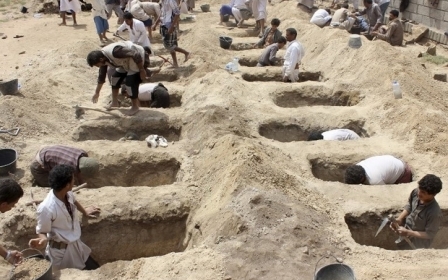Qatar rift overshadows Gulf Arab summit as emir stays away

Qatar's emir skipped a one-day annual summit in Saudi Arabia on Sunday with fellow Arab Gulf leaders whose boycott of the small but energy-flush neighbour has sparked a regional diplomatic row.
Qatar instead sent its state minister for foreign affairs to the six-nation Gulf Cooperation Council (GCC), which was overshadowed by the economic and diplomatic boycott of Doha since mid-2017 by Saudi Arabia, the United Arab Emirates, Bahrain and Egypt over allegations Doha supports terrorism.
Doha - which announced this month it was quitting the Saudi-dominated OPEC oil cartel - denies the allegations, but the dispute has dragged on.
The GCC summit was held as Riyadh faces international pressure over the Qatar boycott, the murder of journalist Jamal Khashoggi at the kingdom's Istanbul consulate and the war against Iran-aligned Houthi rebels in Yemen.
Saudi Arabia's King Salman opened the gathering, urging fellow member states Kuwait, Oman, Bahrain, the UAE and Qatar to maintain a united front against Iran and terrorism.
"This requires all of us to maintain our countries' gains and to work with our partners to preserve security and stability in the region and the world," he said in a speech.
The leaders sat around a table in awkward silence at the close before a bland final communique was read out, stressing the importance of maintaining GCC unity in the face of threats to regional stability and to meet economic challenges.
Ahmed bin Saeed AlRumaihi, director of the information office at Qatar's foreign ministry, slammed the final communique for not addressing the boycott, which Qatar says aims to curtail its sovereignty.
The GCC was formed in 1981 at the height of the Iraq-Iran war and two years after the Islamic revolution in Tehran sparked concern in Sunni-led Gulf states, many of which have sizable Shia populations, including in Bahrain.
GCC Secretary General Abdullatif al-Zayani has said the summit would review ties with Iran after the US reimposed an oil embargo and other sanctions on Tehran following Washington's withdrawal from a landmark 2015 nuclear deal, AFP reported.
Saudi Arabia, along with allies the UAE and Bahrain, accuses Tehran of fomenting unrest among Shia in the Gulf and has backed the US in piling pressure on Iran.
This contrasts with Kuwait and Oman, which prefer normalising ties with the Islamic republic.
The meeting comes as delegations from Yemen's Saudi-backed government and Iran-aligned Houthi rebels hold UN-brokered peace talks in Sweden.
Yemen's capital has been held since 2014 by Houthi rebels who drove the government out and seized a string of ports.
The Yemeni government, now based in the southern port city of Aden, has fought to push back the rebels with support from a military coalition led by Riyadh and the UAE.
King Salman defended the coalition's intervention in Yemen and called for a "political solution" in the impoverished country.
The conflict has killed almost 10,000 people since 2015 when the coalition intervened, according to the World Health Organization, though some rights groups say the toll may be five times higher.
The summit also comes with Saudi Arabia and its de facto ruler, Crown Prince Mohammed bin Salman, under mounting pressure over the murder of Washington Post columnist Khashoggi.
A critic of the crown prince, Khashoggi was killed by a hit squad in the Saudi consulate in Istanbul on 2 October in what the kingdom described as a rogue operation.
Riyadh has steadfastly denied claims the grisly murder of the Saudi journalist was ordered by the crown prince.
US security talks
Arab countries are in talks with the United States about a new security agreement to protect the Middle East from "external aggression," Saudi Foreign Minister Adel al-Jubeir said on Sunday at a news conference at the end of the GCC summit, AFP reported.
"The aim is to achieve security arrangements in the Middle East that can protect the region from external aggression... and strengthen relations between the United States and the countries of the region," Jubeir said.
Asked about reports of talks on the creation of an Arab-American military alliance against Iran, he said: "Talks are continuing between the United States and the Gulf states around this question and ideas are being drawn up".
"It's a work in progress and the two parties want to see it happen," said Jubeir, adding that the alliance would include Egypt and be called the Middle East Strategic Alliance, or MESA.
Media reports have indicated in recent months that an Arab-American anti-Iranian alliance could emerge and that it would be similar to NATO.
New MEE newsletter: Jerusalem Dispatch
Sign up to get the latest insights and analysis on Israel-Palestine, alongside Turkey Unpacked and other MEE newsletters
Middle East Eye delivers independent and unrivalled coverage and analysis of the Middle East, North Africa and beyond. To learn more about republishing this content and the associated fees, please fill out this form. More about MEE can be found here.




